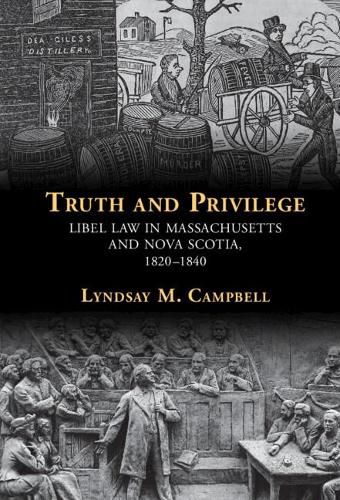Readings Newsletter
Become a Readings Member to make your shopping experience even easier.
Sign in or sign up for free!
You’re not far away from qualifying for FREE standard shipping within Australia
You’ve qualified for FREE standard shipping within Australia
The cart is loading…






Truth and Privilege is a comparative study that brings together legal, constitutional and social history to explore the common law’s diverging paths in two kindred places committed to freedom of expression but separated by the American Revolution. Comparing Nova Scotia and Massachusetts, Lyndsay Campbell examines the development of libel law, the defences of truth and privilege, and the place of courts as fora for disputes. She contrasts courts’ centrality in struggles over expression and the interpretation of individual rights in Massachusetts with concerns about defining protective boundaries for the press and individuals through institutional design in Nova Scotia. Campbell’s rich analysis acts as a lens through which to understand the role of law in shaping societal change in the nineteenth century, shedding light on the essential question we still grapple with today: what should law’s role be in regulating expression we perceive as harmful?
$9.00 standard shipping within Australia
FREE standard shipping within Australia for orders over $100.00
Express & International shipping calculated at checkout
Truth and Privilege is a comparative study that brings together legal, constitutional and social history to explore the common law’s diverging paths in two kindred places committed to freedom of expression but separated by the American Revolution. Comparing Nova Scotia and Massachusetts, Lyndsay Campbell examines the development of libel law, the defences of truth and privilege, and the place of courts as fora for disputes. She contrasts courts’ centrality in struggles over expression and the interpretation of individual rights in Massachusetts with concerns about defining protective boundaries for the press and individuals through institutional design in Nova Scotia. Campbell’s rich analysis acts as a lens through which to understand the role of law in shaping societal change in the nineteenth century, shedding light on the essential question we still grapple with today: what should law’s role be in regulating expression we perceive as harmful?